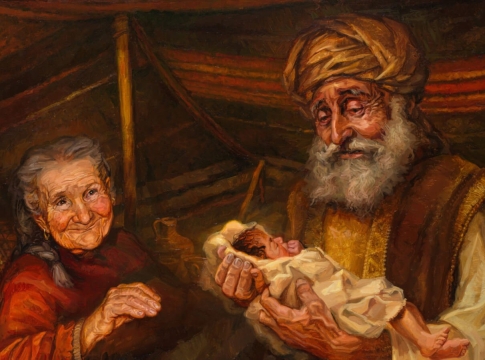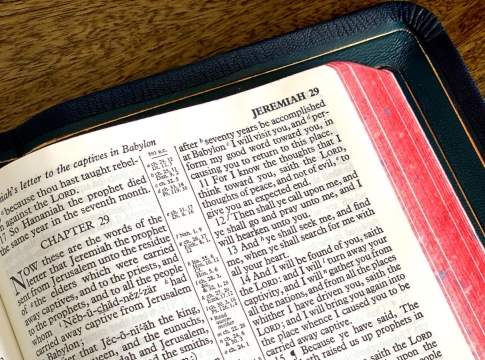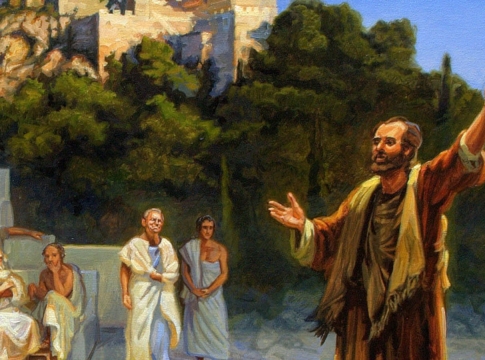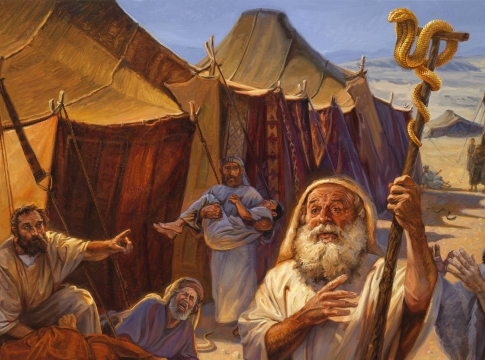
Historical background
Jesus had a group of [followers] during His earthly ministry who went with Him wherever He went, witnessed His teachings and miracles, received a great deal of one-on-one instruction, and were eventually given the mission to preach the gospel to every nation. Peter was one of these disciples.
The Gospels and the book of Acts contain extensive biographies of him, and [he] also penned two letters that are also found in the New Testament. Peter was an apostle of Jesus who lived in the first century AD and was mostly based in Israel.
Peter was actually called Simon
Peter is presented in the Bible for the first time with the startling phrase, “Simon (who is called Peter)” (Matthew 4:18). Thus, we learn that this man’s name was Simon and that he went fishing with his brother Andrew.
However, Jesus urged them to follow Him and abandon their nets. Indeed, they did. Simon became a follower of Jesus after that (eventually termed an apostle). John 1:42 provides an explanation for his dual name: “You are Simon the son of John,” said Jesus, glancing at the man. You will be addressed as Cephas, which is Peter.
Peter belonged to the inner circle of Jesus’ disciples
Peter held a unique role in the group of twelve disciples that Jesus chose, in addition to being one of them. We have read on multiple times that Jesus could only be accompanied by Peter, James, and John. For instance, in Mark 5:37, Jesus raised a little girl from the dead; in Matthew 17:1, Jesus demonstrated His holiness and godliness; and in Mark 14:33, Jesus prayed in the garden of Gethsemane the night before He died. Furthermore, Peter appears to have served as the disciples’ spokesperson.
For instance, we read that Peter “said emphatically, ‘If I must die with You, I will not deny You,'” just before Jesus was crucified. And their responses were all the same (Mark 14:31). Furthermore, Joseph was the first to declare that Jesus was the Messiah, even if he did not fully comprehend what this meant at the time: “But who do you claim that I am? Jesus asked them. “You are the Christ, the Son of the living God,” answered Simon Peter. (Matthew 16:15-16).
Peter was passionate for Jesus, but overestimated himself
Peter was a reckless individual. He spoke without fully considering what he was about to say on several occasions, or he acted quite impulsively. For instance, when Jesus appeared to the disciples in a boat at night and walked across the lake, Peter got out of the boat and approached Jesus right away. However, he became terrified upon seeing the wind and called out, “Lord, save me,” as he started to sink. (Read Matthew 14:30).
Similar to this, when Peter firmly declared that he was ready to die alongside Jesus, he denied Jesus three times that same evening when Jesus was really taken into custody. Peter pulled Jesus aside and started berating Him, saying, “Far be it from You, Lord!” when Jesus first revealed to His disciples that He would have to go through with His suffering and death. You won’t ever experience this.” But Jesus said to him, “Satan, get behind Me! You get in the way of Me. Because you are focusing on things that belong to man rather than those that belong to God (Matthew 16:22-23). These illustrations reveal a little of Peter’s personality.
Peter denied his Master, but Jesus restored him
Peter decided to follow the throng the night of Jesus’ arrest in order to find out what would happen to His Master. But he was afraid of being arrested too, so he refused to be acknowledged as one of Jesus’ disciples! Three times, Peter refuted the claims made by multiple individuals that he had followed Jesus. “He started to swear and incant himself, saying, ‘I do not know this man whom you speak.'” (Mark 14:71). That was a grave betrayal of his Master’s suffering. “He broke down and wept” when Peter understood what he had done.
Peter’s reaction on the day that Jesus was crucified and buried may only be speculated. There was no longer any chance to make things right. However, according to 1 Corinthians 15:5, “He appeared to Cephas, then to the twelve” when Jesus rose from the death. Jesus continued to pursue Peter, showing no signs of giving up. “Simon, son of John, do you love Me?” He asked him three times on a different occasion. (John 21:15–17). Peter was reinstated as a pastor of Jesus’ “flock” of followers as well as a beloved and pardoned child of God when he confirmed this.
Peter was a “pillar” of the early church
Following Jesus’ ascension into heaven and the Holy Spirit’s outpouring at Pentecost, we read of Peter’s straightforward and unambiguous proclamation of the gospel in Jerusalem. A large number of people converted to Christianity.
He later witnessed the first-ever outpouring of the Holy Spirit on a group of Samaritan believers (Acts 8:14–17). And after God called him to preach the gospel there as well, he went to the home of a Roman official named Cornelius. This was a significant event because Cornelius was a Gentile (Acts 10:19–20; 10:44–45). As a result, the apostle Peter was instrumental in carrying out Jesus’ commission to the disciples to proclaim the gospel “in Jerusalem and in all Judea and Samaria, and to the end of the earth” (Acts 1:8).
According to Galatians 2:9, Peter served as a “pillar” in the early church and was primarily focused on sharing the gospel with Jews. In addition, he penned two epistolaries to Christians dispersed around the ancient Roman world. Although Peter’s manner of death is not mentioned in the Bible, other accounts claim that he was crucified at Rome, which would be consistent with Jesus’ prophecy in John 21:18–19. You will stretch out your hands when you are old, and someone else will clothe and carry you to places you do not wish to go. (He stated this to demonstrate the type of death he was to honor God.)
Some lessons for us
- Peter’s story demonstrates how even sincere believers can falter. Sometimes his impetuous nature caused him to talk too fast or make unfulfilled promises. And Peter turned his back on his Master when things got truly dangerous. We should take this as a reminder to not put too much stock in ourselves. Put your faith in God, not in yourself, to keep you alive.
- Jesus is ready to pardon us even if we reject Him. As previously stated by Jesus in Matthew 10:33, “Whoever denies Me before men, I also will deny before my Father who is in heaven.” However, upon Peter’s repentance, Jesus pardoned him and even reinstated him as a prominent figure in the early church. Neither we nor the people around us should ever believe that we are too sinful to be pardoned or that God is not kind enough to extend forgiveness.
- Notwithstanding his shortcomings, Peter is a model of a godly man who served God all of his life and was a tremendous blessing to others. Allow his life narrative to encourage you to follow Jesus yourself!





